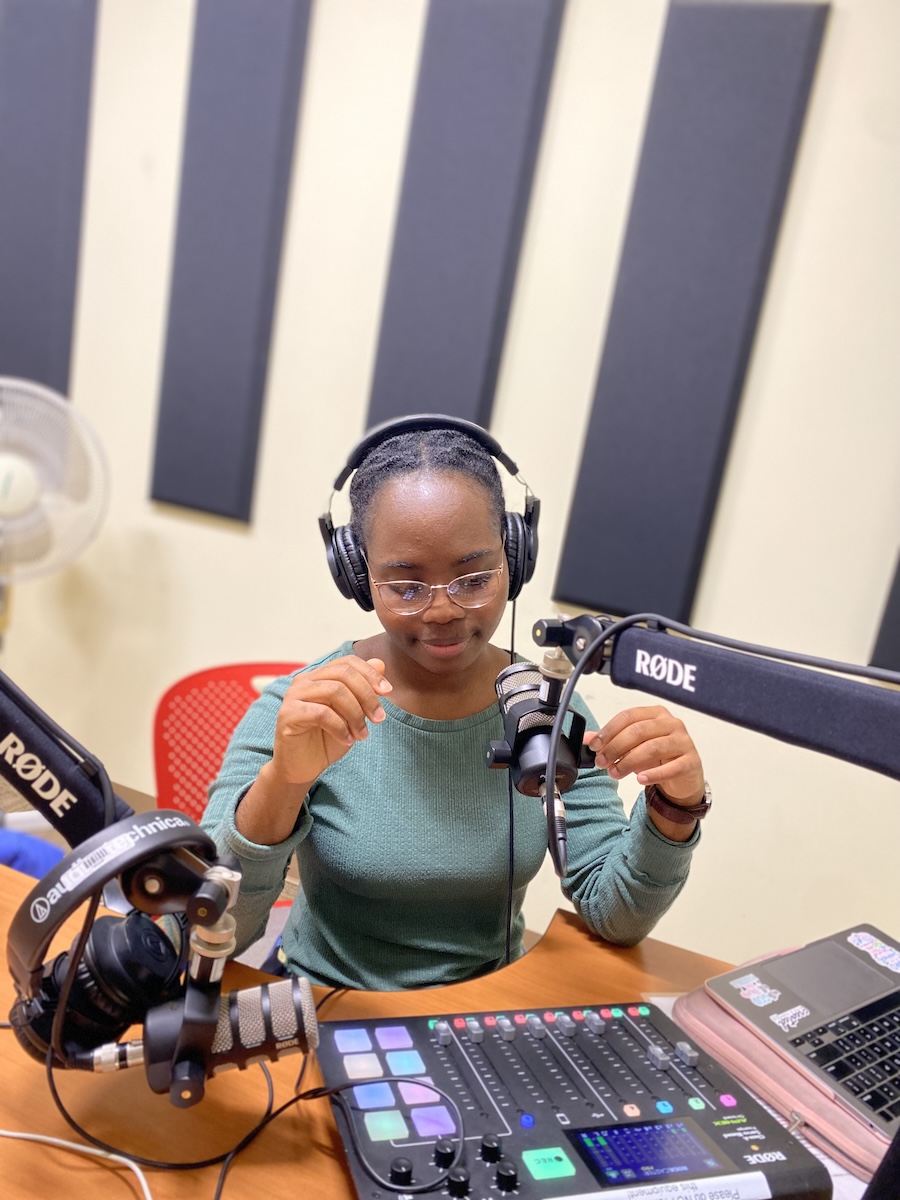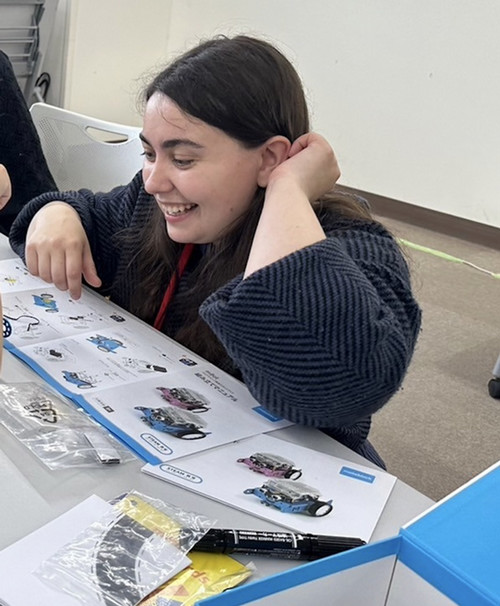Bowdoin Dominates Japanese Language Contest
By Tom Porter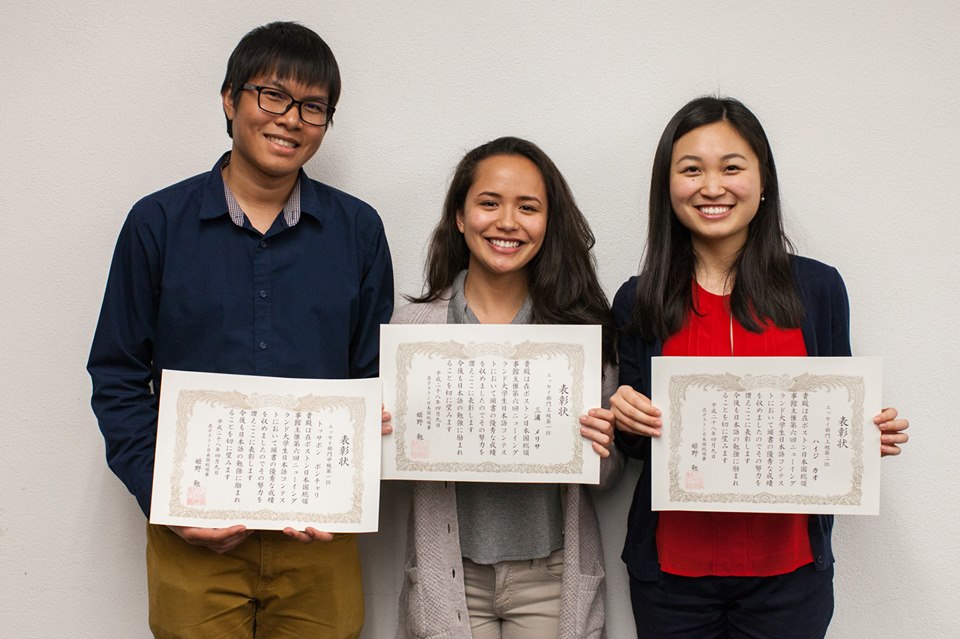
Bowdoin students put in their best performance yet at the recent Japanese Language Contest organized by the Consulate General of Japan in Boston. Bowdoin scooped up four of the nine awards in the regional essay competition April 9.
“We did extremely well, securing first and second place in the Advanced Division, and first and third at the intermediate level,” said Hiroo Aridome, senior lecturer in Japanese, who worked with the students on their projects.
“I met with the students starting at the beginning of the spring semester to discuss topics, structure, and organization before they even started writing.” Aridome said the students had to really think about what kind of story they wanted to tell. “And then once they started writing, there were more meetings and revisions. It is a long and exhausting process,” he added, “but the students who put sincere effort into it really improved their Japanese language skills.”
Melissa Miura ’19 won first place in the Advanced Division. “English is my first language, but as a part Japanese-American from Hawaii I feel a close connection to culture of Japan and I’ve been studying the language since the seventh grade.” For the contest, she had to write an 800 character essay on the theme of “The Japan I Like/My Favorite Japan” (Miura says this is a rough translation of the subject). “I chose to title mine “Rice Cooker.”
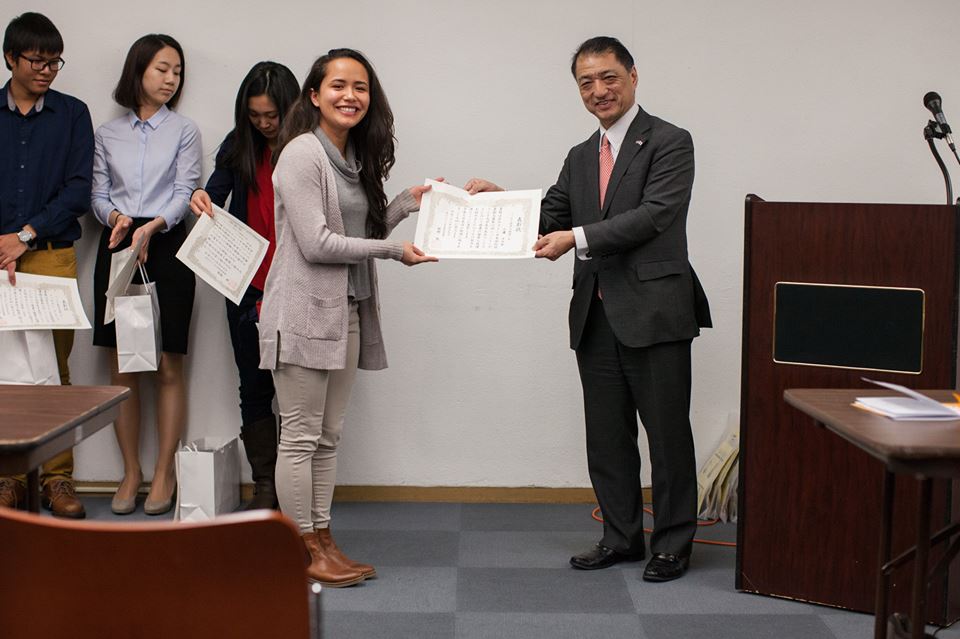
“I talked about my childhood and how at family potlucks with various relatives the dishes would vary, but the one thing that was always constant was the rice cooker in the middle of the table.” Miura said coming to college and not having rice cookers with Japanese rice in the dining halls made her view the rice cooker as a symbol of her Japanese heritage. The rice cooker, she said, was not only a source of shared food, but of culture and identity.
Tossapol Pholcharee ’18, who goes by “Poy,” is a biology and math double major and a Japanese minor. He took first place in the Intermediate Division. “The reason why I take Japanese is because I am a big fan of Japanese manga (comic books), and anime (animated movies and TV shows). I want to be able to understand these cool comic books in their native language. I am also interested in Japanese culture and history, especially topics relating to the samurai.” For his essay entry, Pholcharee wrote about the katana swords traditionally used by samurai and how they sparked his interest in Japanese culture.
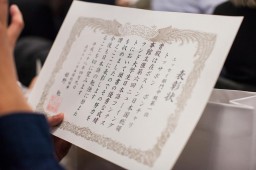
Hui Cao ’16 chose to write about Mount Fuji, a choice that was inspired by her own experience of hiking to the summit of Japan’s iconic mountain during a semester studying in Tokyo in her junior year. The essay earned her second place in the Advanced Division.
“I”m double majoring in Government and Legal Studies, and Asian Studies, focusing one east Asian art. It was this love of art that prompted me to take Japanese in my sophomore year.” Cao, who’s from Shanghai, China, grew up speaking Mandarin, “and I decided that a knowledge of Japanese would really boost my understanding of the artworks and also potentially add to my graduate school portfolio for art history/Asian studies programs.” The fourth prize-winning Bowdoin student was Claudia Knox ’19, who won third place at the Intermediate level.
Every spring the Consulate-General of Japan in Boston sponsors a Japanese language contest for college students in the New England area. There is a speech contest and an essay contest. Intermediate level students should have completed less than three years of Japanese language and have not studied in Japan. Advanced level students should have completed three or more years of Japanese language or studied in Japan at the college level for one or more semesters.
Senior lecturer Hiroo Aridome said this is the third year in a row that Bowdoin has won first and second place in the essay contest for advanced level students, and it’s the first time the college has picked up four awards in total.

